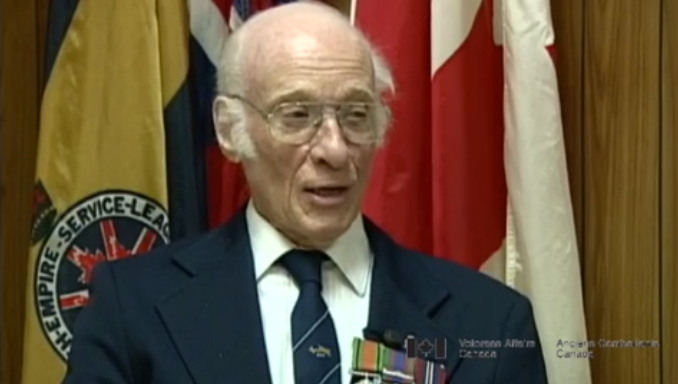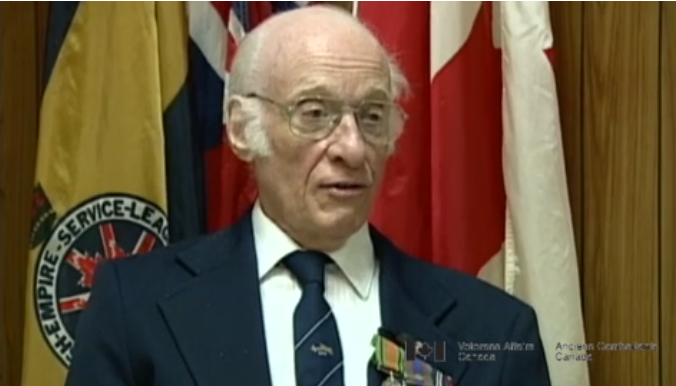True Valour and Honour
Heroes Remember
True Valour and Honour
Transcript
Description
Mr. James speaks against the portrayal of Bomber Command in the CBC production "The Valour and the Horror." He also shares his opinion on how disgraceful it is that no campaign medals were issued for Bomber Command.
Albert James
Mr. Albert James was born in London, Ontario, on April 3, 1919. He attended school there until grade 13, before beginning work with D.H. Hauden and Co. - including years spent in the war, he stayed with the company for over 43 years. In 1940, Mr. James joined the London Militia, and on April 28, 1941, was called to report to the RCAF. After 4 weeks basic training in Toronto, a 14 week radio course at University of Toronto, and 5 weeks training at a RAF radio school in Clinton, he was posted overseas as a radar mechanic. He would eventually land in Gourock, Scotland, on November 23, 1941. From there Mr. James spent a short time in Yatesbury before being posted to #3 group, 115 Squadron with RAF Bomber Command. There he installed, tested, and maintained G radar - a new technology, introduced to aid in navigation, that would revolutionize bombing. In the fall of 1942, Mr. James was selected for project Mandrell and was sent to London to help assemble, and learn to maintain, new radar jamming units. He and other mechanics returned to RAF #3 Group to service the new units for squadrons in the area. Eventually he was promoted to corporal, and put in charge of one of the servicing units. In July 1943, Mr. James was promoted to Senior NCO in charge of the radar section for #75 New Zealand Squadron - RAF Bomber Command. He would remain as an administrator for the remainder of the war, returning to Canada on August 25, 1945. He received his discharge in October, and immediately returned to work.
Meta Data
- Medium:
- Video
- Owner:
- Veterans Affairs Canada
- Duration:
- 04:36
- Person Interviewed:
- Albert James
- War, Conflict or Mission:
- Second World War
- Branch:
- Air Force
- Units/Ship:
- RAF Bomber Command
- Rank:
- Sergeant
- Occupation:
- Radar Mechanic
Related Videos
- Date modified:





